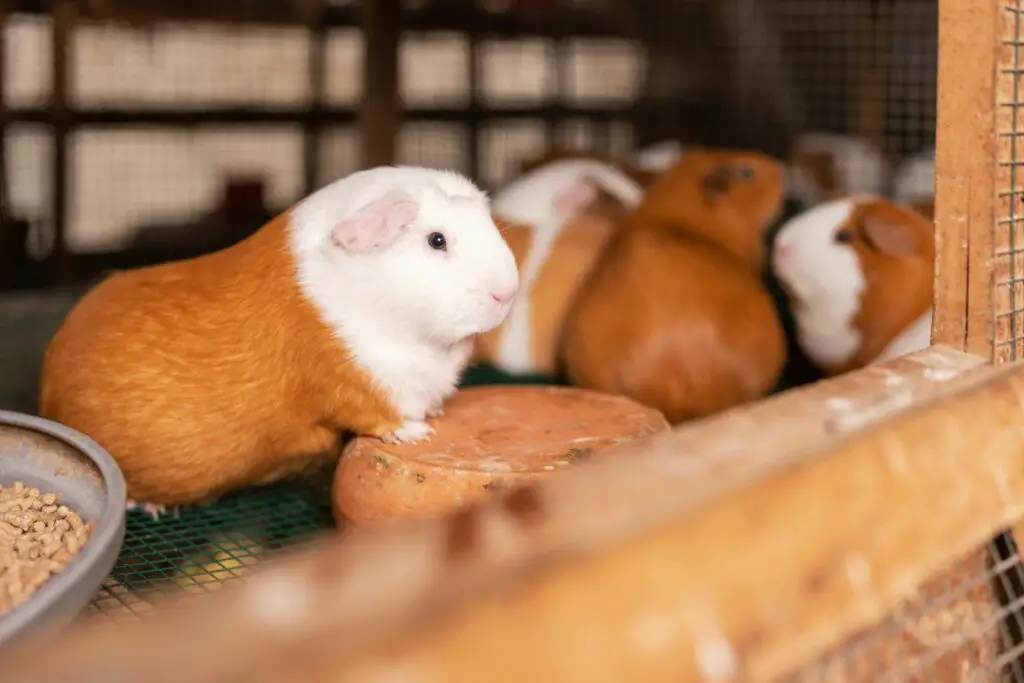Guinea pigs are popular pets due to their cute appearance and gentle nature. I often receive questions from pet owners about their guinea pigs’ behavior and emotions.
One common question is whether guinea pigs understand death and mourning. This topic is important because it can help pet owners better understand their pets and provide appropriate support during difficult times.
In this blog post, we will explore what we know about guinea pig behavior, whether they know when another guinea pig dies, if they mourn, and possible ways to help them cope with loss.

Do guinea pigs know when another guinea pig dies?
Research on animal cognition and death awareness suggests that some animals are capable of understanding death.
However, it is unclear whether guinea pigs have this ability. Observations from guinea pig owners suggest that they may be aware when another guinea pig dies.
Some owners report that their guinea pigs become quiet or stop eating after a cage mate dies. However, it’s not clear whether this behavior is due to an understanding of death or simply a reaction to a change in their environment.
Possible explanations for guinea pig reactions to death include the loss of a social partner or a change in routine.
Guinea pigs are social animals and often form close bonds with their cage mates. When a cage mate dies, the surviving guinea pig may experience loneliness and stress.
Additionally, changes in routine, such as a different feeding schedule or a new cage mate, can also affect guinea pigs’ behavior.
Do guinea pigs mourn?
While evidence of mourning behavior in animals is limited, some studies suggest that animals may experience grief after losing a social partner.
For example, elephants have been observed mourning the death of their herd members, and chimpanzees have been seen carrying around the bodies of deceased companions.
Reports from guinea pig owners and veterinarians suggest that guinea pigs may also experience grief after a cage mate dies.
Some guinea pigs become less active or vocal, and may even become depressed. They may also show a decreased interest in food, which can lead to weight loss and other health issues.
Possible ways to support grieving guinea pigs include providing them with extra attention, comfort, and stimulation. Pet owners can spend more time with their guinea pigs, provide them with new toys or treats, and create a comfortable and safe environment.
It’s also important to monitor their eating habits and seek veterinary care if they show signs of illness.
How can pet owners help their guinea pigs cope with death?
Losing a pet can be a difficult and emotional experience for pet owners. It’s important to take the time to grieve and seek support from friends, family, or a therapist if needed.
When it comes to helping guinea pigs cope with a loss, pet owners can take several steps to minimize stress and provide comfort.
These steps include introducing new guinea pigs slowly and carefully, providing separate cages or areas for each guinea pig, and ensuring that each guinea pig has enough space, food, and water. It’s also important to maintain a consistent routine and provide plenty of attention and affection.
If a guinea pig is showing signs of illness or depression after a loss, it’s important to seek veterinary care as soon as possible. A veterinarian can provide guidance on how to best care for a grieving guinea pig and recommend any necessary treatments or medications.
Conclusion
In conclusion, while it’s unclear whether guinea pigs understand death and mourning, observations from pet owners and research on animal cognition suggest that they may be aware of the loss of a cage mate.
Additionally, guinea pigs may experience grief and depression after losing a social partner. Pet owners can support their guinea pigs during this difficult time by providing extra attention, comfort, and stimulation, and seeking veterinary care if necessary.
Future research may shed more light on guinea pigs’ understanding of death and mourning, and how pet owners can best support their pets during these challenging times.
- How Long Do American Eskimo Dogs Live? Important Factors and Care Tips - September 29, 2023
- Do American Bulldogs Need Grooming? Essential Tips and Care Guidelines - September 29, 2023
- Do Bengal Cats Enjoy Playing? Essential Tips for Keeping Them Active - September 29, 2023